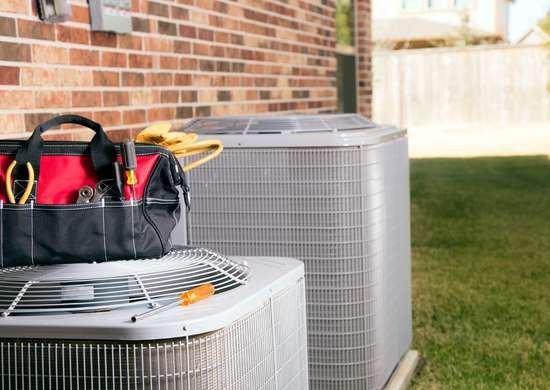
Colorado Springs’ dramatic weather, from scorching summers to frigid winters, puts your HVAC system to the ultimate test. Proper maintenance is the key to ensuring its longevity, efficiency, and your family’s comfort. This guide provides practical, expert tips tailored for homeowners right here in Colorado Springs.
The Importance of a Well-Maintained System
Regular HVAC maintenance goes beyond just comfortable temperatures. It’s about healthy indoor air quality, preventing costly breakdowns, and maximizing the lifespan of your equipment. A well-maintained system also operates more efficiently, saving you money on those ever-increasing energy bills.
Professional Preventative Maintenance: Peace of Mind
Annual preventative maintenance by a qualified HVAC technician is non-negotiable. A professional will thoroughly inspect all system components: heat pump operation, refrigerant levels, electrical connections, and crucial safety controls. They’ll use specialized equipment to measure refrigerant charge and detect any leaks. In Colorado Springs, it’s essential to partner with a technician familiar with the specific HVAC systems prevalent in our region. This proactive approach can catch small problems before they escalate into major, expensive repairs.
The Power of Clean Filters
Changing your air filters regularly is the simplest yet most effective maintenance task. A dirty filter restricts airflow, forcing your system to work harder and consume more energy. Think of it like trying to breathe through a clogged mask. Check your filter monthly and replace it every 1-3 months, or even more frequently if you have pets or allergies. Your HVAC technician can advise on the ideal replacement schedule for your home.
Regular Visual Inspections: A Homeowner’s Role
Between professional visits, you can also play an active role. Perform regular visual inspections. Check the heat exchanger for dust and debris buildup. Inspect refrigerant lines for any signs of damage or leaks. Ensure your thermostat is functioning correctly and maintaining your desired temperature. Consider Energy Star-certified products, such as ceiling fans, to supplement your AC and save energy. And, of course, don’t forget to change those filters!
Keep the Outdoor Unit Clean: Let it Breathe
The outdoor unit, or condenser, also requires attention. Keep the area around it clear of debris like leaves, branches, and overgrown vegetation. Ensure proper airflow. Periodically clean the coils with a gentle spray from your garden hose. A clean condenser unit translates to greater efficiency and fewer future headaches.
Thermostat Batteries: A Small Thing, Big Impact
It’s easy to forget, but changing the batteries in your thermostat is crucial. Dead batteries can lead to inaccurate temperature readings and system malfunctions. Replace them annually or as recommended by the manufacturer.
Carbon Monoxide Detector: Your Silent Guardian
Your carbon monoxide detector is a critical safety device. It alerts you to the presence of this odorless, deadly gas, a potential byproduct of malfunctioning heating systems. Test your detector regularly and replace the batteries annually.
Energy Bills: A Window into Your System’s Health
Changes in your energy bills can signal HVAC problems. A sudden spike in energy consumption warrants a professional inspection.
Seal the Gaps: Doors and Windows
Air leaks around doors and windows force your HVAC system to work overtime. Seal any gaps with weather stripping or caulk to enhance energy efficiency and lower your heating and cooling costs.
Vents and Registers: Keep the Air Flowing
Ensure that vents and registers are free from obstructions. Furniture, curtains, and other items can block airflow, reducing efficiency and potentially damaging your system.
Insulation: The Foundation of Comfort
Proper insulation is fundamental to maintaining consistent temperatures and minimizing energy waste. Ensure your home is adequately insulated in walls, attics, and crawl spaces.
Elevation Mechanical: Your Colorado Springs HVAC Experts
Maintaining your HVAC system is a vital investment in your home’s comfort, efficiency, and your family’s safety. By following these tips and partnering with a trusted HVAC professional like Elevation Mechanical, you can ensure your system performs optimally for years. Contact Elevation Mechanical today for all your HVAC needs in Colorado Springs!
Frequently Asked Questions
- How often should I have my HVAC system professionally maintained? Annual professional maintenance is highly recommended.
- How do I know when I need to replace my HVAC system? Signs include rising energy bills, inconsistent temperatures, unusual noises, and frequent repairs.
- What should I do when my HVAC system is making strange noises? Turn off the system immediately and contact a qualified technician.
- How can I increase the efficiency of my HVAC system? Regular filter changes, sealing air leaks, and professional maintenance are essential.





